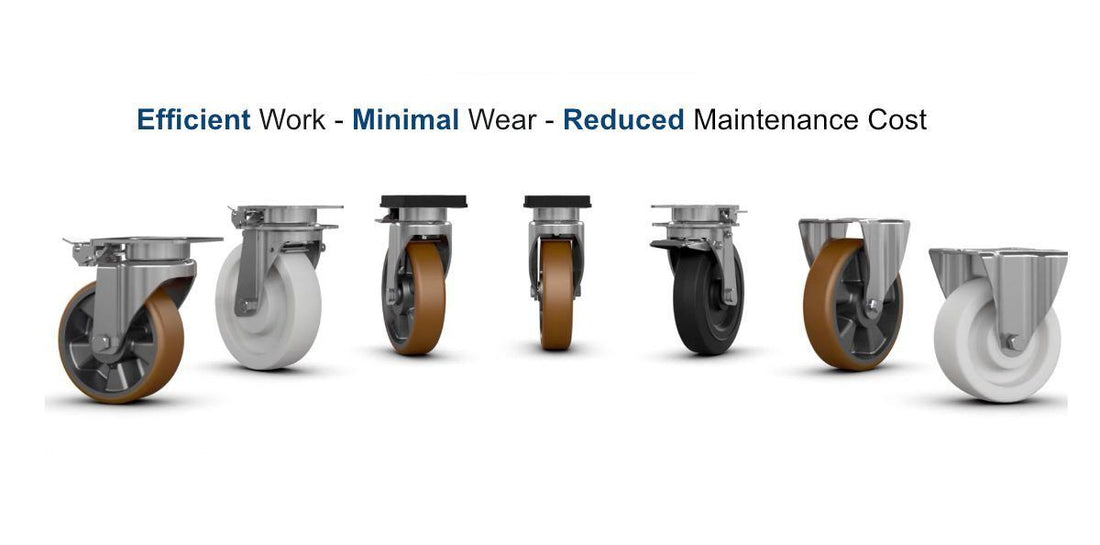How to Select the Right Casters and Wheels for Your Applications
We are going to discuss casters and wheels but I can't do that without bringing on my guests and that's Marty Wilson from Hamilton and manufacturer of casters wheels carts and trailers. Welcome Marty. How are you? Thank you very much for having me. I'll tell you what we got a lot of wheels. Here buddy, what are we going to talk about today on the program. We're going to talk about some of the basic procedures and specifying casters and wheels. Where do we start? Because we got a whole bunch of them where you want to begin.

First it's good to understand some caster basics if you're going to be replacing casters you'll need to know the top plate size. You'll need to know the overall height of the caster. You'll need to know the wheel diameter and the bolt hole pattern. Let's just face it won't fit everything has to be just right and you want to make sure that it fits. What's next we need to do is determine what capacity caster. We're going to require for each caster and that's basically you take the amount of your maximum load and divide it by the number of casters. That you're going to be using simple mathematics if I got a thousand pounds. That I want to carry I got to figure out what kind of surface for the wheel that will carry that capacity kind of simple. I got it so far the next thing we need to do is determine what we really be best suited for the application and how do you do.


That because we do have a lot of them. Here the most versatile wheel material that we have is our polyurethane. Material polyurethane comes in several different flavors and it's designed to do different tasks. There like a real common wheel one of these that people choose more often than other. That's the 95 a industry standard polyurethane wheel. It's really nice floor protection. It comes in with nice rollability embracing resistance and it's relatively cost effective. The next thing we have is our 82 durometer poly soft material. It rolls really easily because it's a really high rebound material it's really bouncy, repels foreign objects and debris from the floor what if we need more capacity in a polyurethane wheel. Where do we go next then? We have the 70d poly for you which is a harder quite a bit harder wheel material.



It comes in with about 30% higher capacity and they roll easier. We've recently introduced the highest performing polyurethane wheel. That's available and what is the name of that animal. The 95 a poly the number-one enemy of polyurethane is heat alright and as a wheel rolls. It flexes and when it flexes. It builds up heat in. This wheel doesn't build up heat so in higher speeds and continuous operations. It will extend the life of your caster. Well I've heard you talk about rolling several times. I mean I know it's got to be important but just how important is it. When things are manually pushed organ ah mcsim portent. The easier you can make your material to move through the facility, the more you're going to help your workers avoid back injuries and easier on yourself isn't absolutely. What other wheel materials do we have here on the table? Mold on rubber has been around for a long time. This is a mold on rubber on cast iron.

